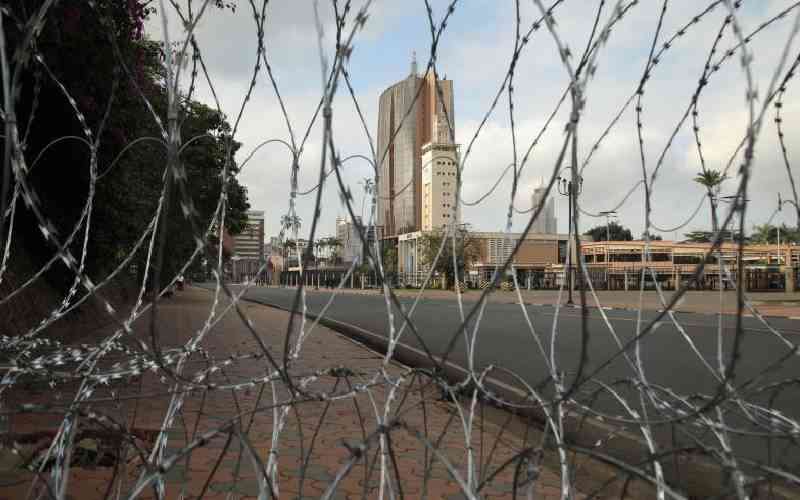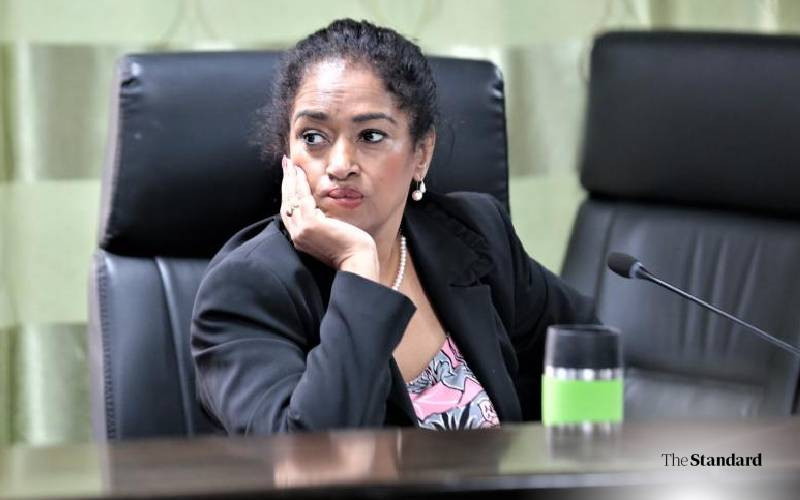Government makes efforts to silence public protests through Bills
The State, through parliament has once more come up with a contentious Bill to control when, how and where the public should hold demonstrations.
The Public Order Amendment Bill, 2025 is no different from the Assembly and Demonstrations Bill, of 2024, which ran contrary to the bill of rights as it imposed disproportionate restrictions upon the fundamental right to assembly and to demonstrate, as protected by Article 37 of the Kenyan Constitution.
Introduced in parliament by Nairobi Woman Representative Esther Passaris, the Bill seeks to direct and probably scuttle the way in which picketing and demonstrations are held in Kenya.
It proposes to change the Public Order Act by redefining what constitutes a public meeting, processions as well as introducing specific spaces or zones for picketing.
Article 37 of the Constitution of Kenya, specifies that every person has the right, peaceably and unarmed, to assemble, to demonstrate, to picket, and to present petitions to public authorities; this right is a fundamental freedom.
It is this fundamental freedom that has turned very dicey for a government that is plagued by protests and demonstrations on many fronts but foremost on matters of poor governance, endemic corruption and lack of the rule of law.
By the mere fact of demonstrating against it, the government cannot arrest and successfully prosecute any peaceful demonstrator even as demonstrators are increasingly targeted by the state during or after the act of picketing.
Many are beaten up or shot in the process while some are abducted, but even all these heinous acts have not stemmed the propensity for more protests. Extra-judicial processes have increasingly become a hallmark of the rule of the present Kenya Kwanza administration.
The government backed Public Order Amendment Bill, 2025 is in essence trying to curtail the benefits given from Article 37 of the constitution by placing limitations and restrictions on specifically how free citizens can enjoy a fundamental right.
This is an affront to the Constitution of Kenya which, in principle, is trying to say it was not drafted well enough to serve the needs of the people when picketing.
On the other hand, the Public Order Amendment Bill, 2025 is by design a bill for the season and not for the reason of granting fuller fundamental right to citizens of this country.
In many ways, the Public Order Amendment Bill, 2025 proposes changes to the existing Public Order Act (Cap. 56) by introducing restrictions on the locations of public meetings. One of the proposals spells out that there will be no public meeting or procession allowed within a 100-meter radius of Parliament, protected areas such as State House (under the Protected Areas Act) and courtrooms.
It states that “A person who contravenes the provisions of this section commits an offence and shall, on conviction, be liable to a fine not exceeding Ksh100,000 or to imprisonment for a term not exceeding three months, or both.”
The Bill also seeks to designate the Interior Ministry Cabinet Secretary an authority to designate where protests can be held (in consultations with county government) and areas where they cannot be held.
Appearing before the Administration and Internal Security Committee on Tuesday, Passaris said that her proposal seeks to create guidelines on where demonstrations should be held.
She said that protests in the country need to adopt an orderly conduct to avoid violence and death of protesters as seen in previous national demonstrations.
The official touted reason for this Bill is in light of the wanton destruction of property witnessed during the last few demonstrations.
The government ascribes to the protestors the mayhem and loss of property and the protestors, in turn, say the goons who infiltrate the demonstrations, ostensibly, with the blessings of powerful officials in government, are to blame.
On June 25, the public witnessed incidents of arson, destruction of personal and public property, looting, breaking and stealing, robbery among others. Many suspects were arrested by the police and are to face numerous charges orchestrated on this fateful day.
As enshrined within Chapter 56 of the Public Order Act, organizers for specific protest marches are required to give the public authorities (police) a 3-day’s-notice, adhere to protocols of peace and eschew violence and provocative weapons, share date, location and time of the planned picketing and ensure it is from 6 am to 6 pm.
This is clearly not working for the current regime which is seeking to have the law prescribe a straitjacket for protestors so as to have some breathing space.
The 2010 Constitution and international human rights instruments indicate a clear establishment of a presumption in favor of peaceful assemblies where the term ‘peaceful’ enjoys a broad interpretation that includes conduct that may annoy or give offence or temporarily hinders, impedes or obstructs the activities of third parties.
It calls for protection of life, individual criminal responsibility for protesters who behave violently, and minimal restrictions on a protest even in the face of imminent danger like the presence of offensive weapons among the protesters.
The National Police Service Standing Orders (2017: Chapter 58) directs the police to conduct themselves in a manner that respects the rights and freedoms of all people.
Article 24 of the Constitution of Kenya outlines factors that should be considered and these include: the nature of the right, purpose of the limitation, nature of the limitation, the rights of others and the availability of less restrictive means to achieve the purpose of the limitation.
While a fundamental right, Article 37's application can be restricted by law. However, these limitations must be reasonable and justifiable in a democratic society. This means the law cannot arbitrarily restrict these rights.
For instance, a law restricting public protests during a pandemic could be deemed justifiable, but a law restricting peaceful protest without a clear and substantial public safety reason would likely be seen as a violation. Has Kenya become short of laws to ensure peaceful public demonstrations?












